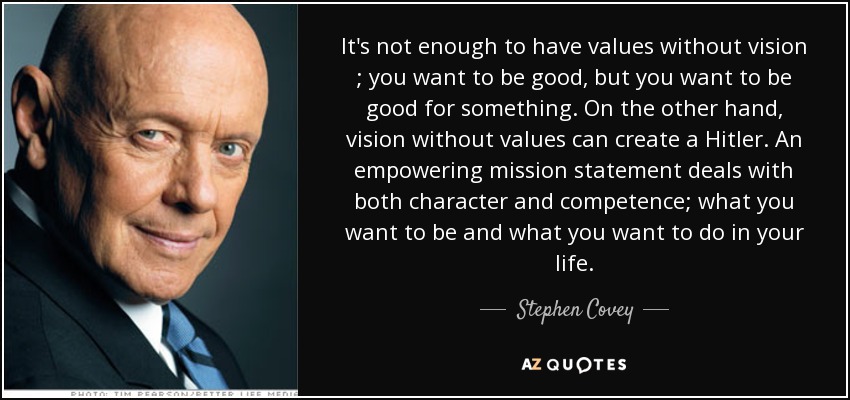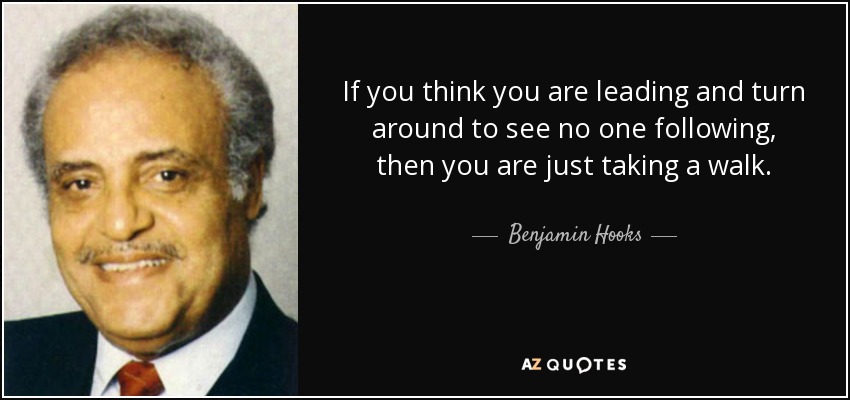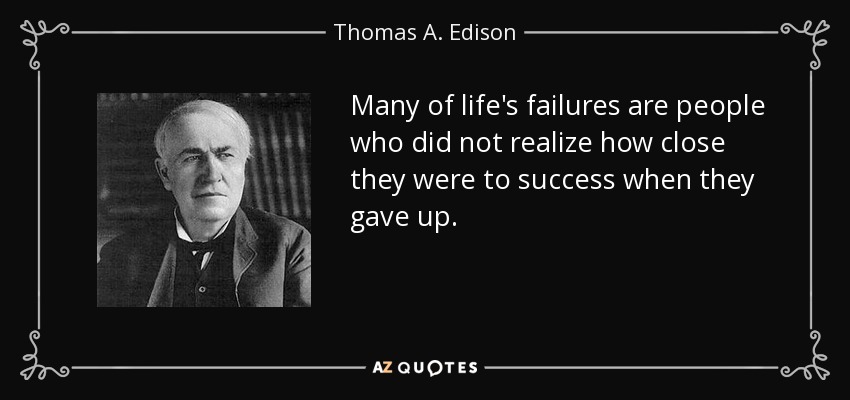Click here to return to Blog Post Intro

Finzel starts his book by saying, “If you’re a seasoned leader like me, then take up the charge of leading to leave. Leading to leave is not about clinging to a position but paving the way for future leaders.”
Leaders make things happen, and people try to stop them. Not only do we fight our internal life struggles; we also bear the frustrations of others who can wear us down with unrealistic expectations. Most of the time, leaders give up on trying to win the battle of expectations and finally just quit. Discouragement is one of the strongest tools Satan uses to try to take leaders out.
It takes a lifetime to build a strong leadership reputation and less than an hour to destroy it. That is why Finzel admires the long track record of Moses.
INTRODUCTION TO MOSES: BIG LESSONS FROM AN EPIC LIFE
Moses fits America in every age. For 20 generations, his story has transcended “all our rivalries, political and religious—Democrats and Republicans, Christians and Jews and unbelievers, slaves and masters, men and women.” Even now, as the Bible is less commonly read, Moses still thrives, detached from his scriptural moorings.
Of the sixty-six books of the Bible, Moses is mentioned in thirty-two of them! Moses is mentioned in twenty books of the Old Testament and twelve books of the New Testament. He was a man of great importance to God’s plan and to God’s people.
D. L. Moody summarized Moses’ life this way, “Moses spent his first forty years thinking he was somebody. He spent his second forty years learning he was a nobody. He spent his third forty years discovering what God can do with a nobody.”
LEADERSHIP COMMANDMENT #1: THOU SHALT CLING TO THE VISION
Big Idea: Where there is no vision, the people don’t follow. It is as simple as that. Vision for a better future, conveyed with genuine passion, is the great motivator.
In his book Be the Leader You Were Meant to Be, LeRoy Eims says, “A leader is one who sees more than others see, who sees farther than others see, and who sees before others do.”
In the book The Leadership Challenge, Jim Kouzes and Barry Posner write, “Leaders are pioneers. They are people who venture into unexplored territory. They guide us to new and often unfamiliar destinations. People who take the lead are the foot soldiers in the campaigns for change. The unique reason for having leaders—their differentiating function—is to move us forward. Leaders get us going someplace.”
A leader must cast a vision of new opportunities. People hunger for vision. It seems like they need it more than anything else we can provide as their leader. Finzel explains, “I don’t know where I first heard this, but I have seen it for real: ‘In the absence of great dreams, pettiness prevails.’ On a recent visit to my publisher in Colorado Springs, I was struck by the centerpiece of his office decorations, a large frame plaque on the wall. The caption read, ‘Attempt something so big, that unless God intervenes, it is bound to fail.’”
Stephen Covey talks about vision in his book The 7 Habits of Highly Effective People: “We are more in need of a vision or destination and a compass (a set of principles or directions) and less in need of a road map.” Covey clarifies the difference in management and leadership when he says, “Management is efficiency in climbing the ladder of success; leadership determines whether the ladder is leaning against the right wall.”
In Visionary Leadership, Burt Nanus defines vision as simply “a realistic, credible, attractive future for your organization.… Selecting and articulating the right vision, this powerful idea, is the toughest task and the truest test of great leadership.”
Bill Hybels, Pastor at Willow Creek, writes in his book Axiom, “At the core of leadership sits the power of vision, in my estimation the most potent offensive weapon in the leader’s arsenal. It has been defined dozens of ways, but for me, the crispest articulation of vision is that it’s a ‘picture of the future that produces passion in people.’”
Aubrey Malphurs in Values-Driven Leadership writes, “Twenty-first-century leaders will lead not by the authority of their position but by their ability to articulate a vision and core values for their organizations or congregations.”
Like Moses, Finzel notes that he has found it most difficult to keep the vision alive in the middle years of his leadership. Moses poured the vision into his protégé, Joshua, at the end of his career—when we fast-forward to the end of Moses’ career, we see him transfer the vision to Joshua.
LEADERSHIP COMMANDMENT #2: THOU SHALT NOT SERVE THINE OWN EGO
Big Idea: Reluctance is a common trait of great leadership. It is the foundation for humble lifelong leadership. If you find yourself a reluctant leader, you are in good company.
Numbers 12:3 says, “Now Moses was a very humble man, more humble than anyone else on the face of the earth.”
Moses was a reluctant leader from the start, and he never wanted the job God gave him. Reluctance has always been a good foundation for effective leadership.
Moses’ Five Excuses to God—“You Talking to Me?”
- The Excuse of Identity: In Exodus 3:11, Moses told God that He had the wrong man.
- The Excuse of Authority: In Exodus 3:13, Moses was convinced that the Israelites would not believe that God sent him.
- The Excuse of Credibility: Exodus 4:1 is very similar to the second. Moses still thought that they would not believe he was God’s man for this deliverance.
- The Excuse of Gifting: In Exodus 4:10 Moses turned his excuses inward on his capabilities. He basically told God that he could not be a public speaker. In the book The Ascent of a Leader, Bill Thrall, Bruce McNicol, and Ken McElrath teach the concept that your gifts might get you to the top, but only character can keep you there.
- The Excuse of Cowardice: In Exodus 4:13, Moses had run out of excuses, so he just gave up and pleaded with God to send someone else—the prayer of the reluctant leader.
As we see with Moses, God cannot use people who are full of themselves. He prefers empty vessels.
There are Seven Deadly Motives for Leadership: Power; Prestige; Position; Popularity; Pride; Personal Gain; and Paycheck.
Rick Warren starts his book The Purpose Driven Life with this statement: “It’s not about you.”
Paul offers this advice:
- Ephesians 4:2: Be completely humble and gentle; be patient, bearing with one another in love.
- Philippians 2:3: Do nothing out of selfish ambition or vain conceit, but in humility consider others better than yourselves.
LEADERSHIP COMMANDMENT #3: THOU SHALT PRACTICE SERVANT LEADERSHIP
Big Idea: A servant leader cares more about the good of the organization and its people than his or her own enrichment. Servant leaders are not about being self-centered, but they love to share the load. They are team focused.
Servant leadership—what is it really? Servant leadership is simply when the leader cares more about the good of the organization and its people than his or her own enrichment.
A servant leader staffs to his or her weaknesses. They have enough self-confidence to surround themselves with people more gifted than they are. One key to effective servant leadership is leading with a team and through a team. It is not about “me”; it is about “we.”
Moses decided it was more about “we” than it was about “me.” The Old Testament (specifically Numbers 12:3) claims that Moses was the most humble man on earth.
Finzel heard this saying several years ago, “Blessed are the control freaks, for they shall inhibit the earth.” But servant leadership is the opposite …
LEADERSHIP COMMANDMENT #4: THOU SHALT BE OPPOSED, RESISTED, AND MISUNDERSTOOD
Big Idea: Great leaders face great opposition. The bigger the vision, the more some people will resist it. Expect opposition, and learn how to deal with it when it comes.
General Colin Powell once observed, “Being responsible sometimes means p***ing people off.” Great leaders undoubtedly face great opposition.
Leadership can be a constant emotional roller coaster. One day you’re making progress, good things are happening, and then zing! If this is your experience, then you’re living in the land of normal. If this is not your experience, then either you’re living in isolation and are out of touch with the people, or you haven’t been leading long enough yet.
Most people fall into one of these three categories when it comes to following the vision of their leaders—the “15-70-15 Principle: The Followers Continuum”:
- 15 Percent: Innovators and Early Adopters
- 70 Percent: Wait and See What Happens This is the silent majority.
- 15 Percent: Resisters—The Convinced Opposition
Here’s the lesson on leadership from the experience of Moses: You will be opposed, resisted, and misunderstood. And if you are naturally a people pleaser, you are in for a rough ride.
Resisting change really boils down to one word: FEAR—“False Expectations Appearing Real.”
Top Ten Fears of Change:
- Fear of the unknown
- Fear of loss or failure
- Insecurity—I may be worse off
- Power—I may lose some
- Uncertainty and confusion—misunderstanding the intent of the change
- Inertia—the status quo is strong
- Energy and pressure—it takes more work and stresses us out
- Money—it costs more to change things
- Lack of trust—our leaders messed up before
- Doubt—not sure this is the right direction to solve our problems
Ten Biblical Ways to Defuse an Attack by Dr. Ken Williams
- Keep Silent for Starters (John 19:9; Prov. 17:27–28; Isa. 53:7)
- Think Before You React (Prov. 15:28; 29:20; James 1:19–20)
- Really Listen (Prov. 18:2–23; 19:20; James 1:19)
- Respond Gently (Prov. 15:1; 16:21; 25:15)
- Agree (Matt. 5:25; John 18:37) –with whatever is true –in principle –with the possibility of truth
- Give Caring Feedback (John 19:11; Prov. 15:1)
- Ask Me for More Clarification (John 18:34; Matt. 5:39–41)
- Avoid Quarreling (Eph. 4:31; Prov. 17:14)
- Offer to Help (Matt. 5:40–41; Luke 6:27–28)
- Ask for Forgiveness, If Appropriate (1 Sam. 15:24–30; 25:28)
LEADERSHIP COMMANDMENT #5: THOU SHALT HAVE A LIFE
Big Idea: Don’t let work trump family. Because of the intense demands on leaders, it is tempting to get out of balance in our personal lives. Many leaders fail in their professional lives because they lose control of their personal lives.
Being physically fit and healthy is a huge part of coping with the demands of leadership. Finzel explains, “When I am overweight, eating poorly, and sedentary, I find that I get very sluggish. My body is sluggish, and my mind is sluggish. And you know what else? My heart and spirit get sluggish too. Find a way to care for your temple—the only body you will ever have. The better you take care of yourself, the better you’re going to be for your people and for your family. I believe it makes me a much more effective leader and a better husband and father.”
Moses was the classic workaholic, even though he was doing it all for God!
President Ronald Reagan was often criticized for his lack of attention to the details. Some said he was asleep at the wheel. He was not an early riser and did not work late into the evening. But his critics misunderstood good leadership. He proved to be an extremely capable leader, and his strengths were communication, vision casting, and staying focused on the primary goals. Reagan worked hard each day, headed to the gym at the end of the afternoon, and then had Nancy time and personal time in the evenings. He was not a workaholic. Reagan had a sign on his desk that said, “There is no limit to what a man can do or where he can go if he doesn’t mind who gets the credit.” Those are the words of a delegator.
Leadership is about setting direction, casting vision, and coaching the team. Management is about control, and control is not leadership.
Howard Hendricks was one of Finzel’s early mentors in seminary in Dallas, Texas. Hendricks taught the importance of loving wives and always giving them time and attention. He often said, “The best thing you can ever do for your children is to love their mother.” He also taught how to divide work life from home life.
Two common excuses for not taking vacation are finances and time: “I just don’t have the money for a real vacation.” And of course, “I just can’t seem to find the time.” For both of these problems, planning would solve them. It really comes down to a choice of priorities.
Research shows that Americans are the worst vacation takers on planet Earth. Almost fifty million Americans are vacation deprived, according to Expedia.com. The facts show that 34 percent of employed US adults report they don’t use all their vacation days each year.
LEADERSHIP COMMANDMENT #6: THOU SHALT SWEAT THE SMALL STUFF
Big Idea: Character always trumps gifting in leadership. And character is made up of many small acts of integrity. Effective leaders have to pay attention to the small stuff even if they are big-picture thinkers.
Here is how the dictionary defines integrity: (1) “adherence to moral and ethical principles; soundness of moral character; honesty”; (2) “the state of being whole, entire, or undiminished: to preserve the integrity of the empire”; (3) “a sound, unimpaired, or perfect condition: the integrity of a ship’s hull.”
Finzel once asked leadership guru John Maxwell, “How would you describe a successful life when you are looking back from the finish line?” Maxwell responded, “I have always stated that my definition of success is that those closest to me love and respect me the most. So I will have finished well if at the end … those closest to me, who knew me inside and out, love and respect me the most.”
Warren Buffett, CEO of Berkshire Hathaway, advised leaders, “In looking for people to hire, you look for three qualities: integrity, intelligence, and energy. And if they don’t have the first, the other two will kill you.”
Integrity is crucial for leaders, who have to keep a close eye on the little attacks waged on their lives and hearts every day. Pay attention to the hairline cracks that can become a chasm, taking us out of our leadership position entirely.
Integrity showed up time and again in Moses’ faithfulness to God’s commands. Here is a statement that occurs over and over again in the Old Testament: “Moses did as the LORD commanded him” (Num. 27:22). This phrase appears ninety-four times in the Old Testament!
Sweating the small stuff is about living a life of integrity. The ideal leader has balance in his or her life, good competencies, and a solid character on both sides of the balance beam.
LEADERSHIP COMMANDMENT #7: THOU SHALT SPEND TIME IN THE TENT
Big Idea: Leaders in ministry cannot succeed in the realms of the spirit without the “God factor.” Our relationship with Him affects every aspect of our leadership. Time with Him translates into power for His cause.
Moses was a great man of prayer who walked with God in an unusual way. In the same way, we need to be leaders listening to God. We need to be pursuers of God. We need to be more about being, less about doing. Our relationships with each other are key to God’s blessing. Leadership success comes down to issues of the heart.
Deuteronomy 34:10 reads, “Since then, no prophet has risen in Israel like Moses, whom the LORD knew face to face.” Moses’ close relationship with God started at the burning bush, and he kept close to that flame his whole life.
How many of our prayers through the years have been so much more about asking for something rather than about listening? Unfortunately, many of us tend to pray when in crisis. We seek God in the tough times when we need His help.
It was because Moses spent so much time with God that he had so much to say to the people.
Finzel notes that he has been taught all his life about praying with the “ACTS” formula: Adoration, Confession, Thanksgiving, and Supplication. For most of us, prayer is really about getting around to the “S.” We use prayer as God’s 911 help line—“Help us, Lord, with this and that problem …”
Moses modeled one slight change to the “ACTS” formula daily in the tent, which is a better way to approach God: A—Adoration C—Contemplation T—Time S—Silence.
LEADERSHIP COMMANDMENT #8: THOU SHALT LEAD TO LEAVE
Big Idea: Leadership success without successors is failure. We should lead not by hanging on to our positions of authority till the bitter end—but by mentoring future leaders so we leave with grace and open hands.
Church consultant Lyle Schaller observed years ago that most leaders stay too long as opposed to leaving too soon. And his corollary comment was this, “We do more damage in overstaying our welcome. It’s better to leave too soon than to stay too late. Leave while they are still begging you to stay!”
We should stop leading before our followers stop following.
We usually begin any new leadership challenge with vision, passion, and enthused expectancy. But what about the other end? How do we feel when we see our days of leadership assignment coming to a close?
The best thing we can do for our legacy as we are on our way out is to set aside our egos and make the way as smooth and supportive as possible to the one coming in to replace us.
It is easy to talk about the business of passing the baton, but it can be painful in reality. As a leader approaches the conclusion of his or her tenure, the most important element to finishing well is to position the organization for the future.
LEADERSHIP COMMANDMENT #9: THOU SHALT NEVER GIVE UP
Big Idea: There are many times we want to quit as leaders. There is not a leader alive who will not face deep waters of loneliness and discouragement. It is lonely at the top. This chapter will explore why that is true and why we need to be patient in leadership.
Here are some famous failures who refused to quit, and I think we would all agree that it was a good thing they did not:
- Dismissed from drama school with a note that read, “Wasting her time. She’s too shy to put her best foot forward.”—Lucille Ball
- Fired from a newspaper because he “lacked imagination and had no original ideas.”—Walt Disney
- Turned down by the Decca recording company, who said, “We don’t like their sound, and guitar music is on the way out.”—The Beatles
- Cut from his high school basketball team, he went home and locked himself in his room and cried. —Michael Jordan
- His teacher told him he was too stupid to learn anything and that he should go into a field where he could succeed by virtue of his pleasant personality.—Thomas Edison
- His fiancée died. He failed in business twice. He had a nervous breakdown and was defeated in eight elections.—Abraham Lincoln
Discouragement can be the number one tool in Satan’s arsenal to take out leaders.
“Is it time to leave?” It is time to go if several of these things are present:
- Lost faith in the leadership above you; personal or professional integrity has been compromised.
- You’re working in less than 25 percent of your area of gifting.
- You don’t have any good weeks—just one bad week after another.
- People see you as the source of problems.
- Great new opportunities knock on your door. Your heart is being drawn to a new place of leadership
- The biggest one of all: Your heart is just not in it anymore. You have lost the passion for the assignment. The challenge has left the building.
Consider the 60/40 rule: Spend at least 60 percent of your time doing things you are good at and that are in your gifting area. The other 40 percent is servant leadership—doing those things that have to be done whether you enjoy them or not.
LEADERSHIP COMMANDMENT #10: THOU SHALT KEEP THINE EYES ON THE PRIZE
Big Idea: Motivation to lead should come from a calling higher than just serving people or making a living. The drive to keep going comes when we serve our values, we serve our God, and we serve our passion, vision, and calling. We do not simply work for the organization or people who hired us.
Finzel developed a simple definition of calling several years ago. It’s a simple phrase that covers the entire issue, “Follow the most compelling of many options at any cost.”
- Follow the Most Compelling: What drives you? What is your biggest dream about what you would like to do?
- At Any Cost: This is where most people stumble and settle for less than the best. Paying the price can include both that which you have to give up as well as that which you have to experience.
A call is not about an audible voice or some other direct communication from God. It’s more subjective and subtle. It is a drive to do something that you cannot get out of your heart.
Jim Rohn says this about the call of God on our lives, “Each of us has two distinct choices to make about what we will do with our lives. The first choice we can make is to be less than we have the capacity to be. To earn less. To have less. To read less and think less. To try less and discipline ourselves less. These are the choices that lead to an empty life. These are the choices that, once made, lead to a life of constant apprehension instead of a life of wondrous anticipation. And the second choice? To do it all! To become all that we can possibly be. To read every book that we possibly can. To earn as much as we possibly can. To give and share as much as we possibly can. To strive and produce and accomplish as much as we possibly can. All of us have the choice.”
May The Ten Leadership Commandments serve you well, as you shoot for the stars!



